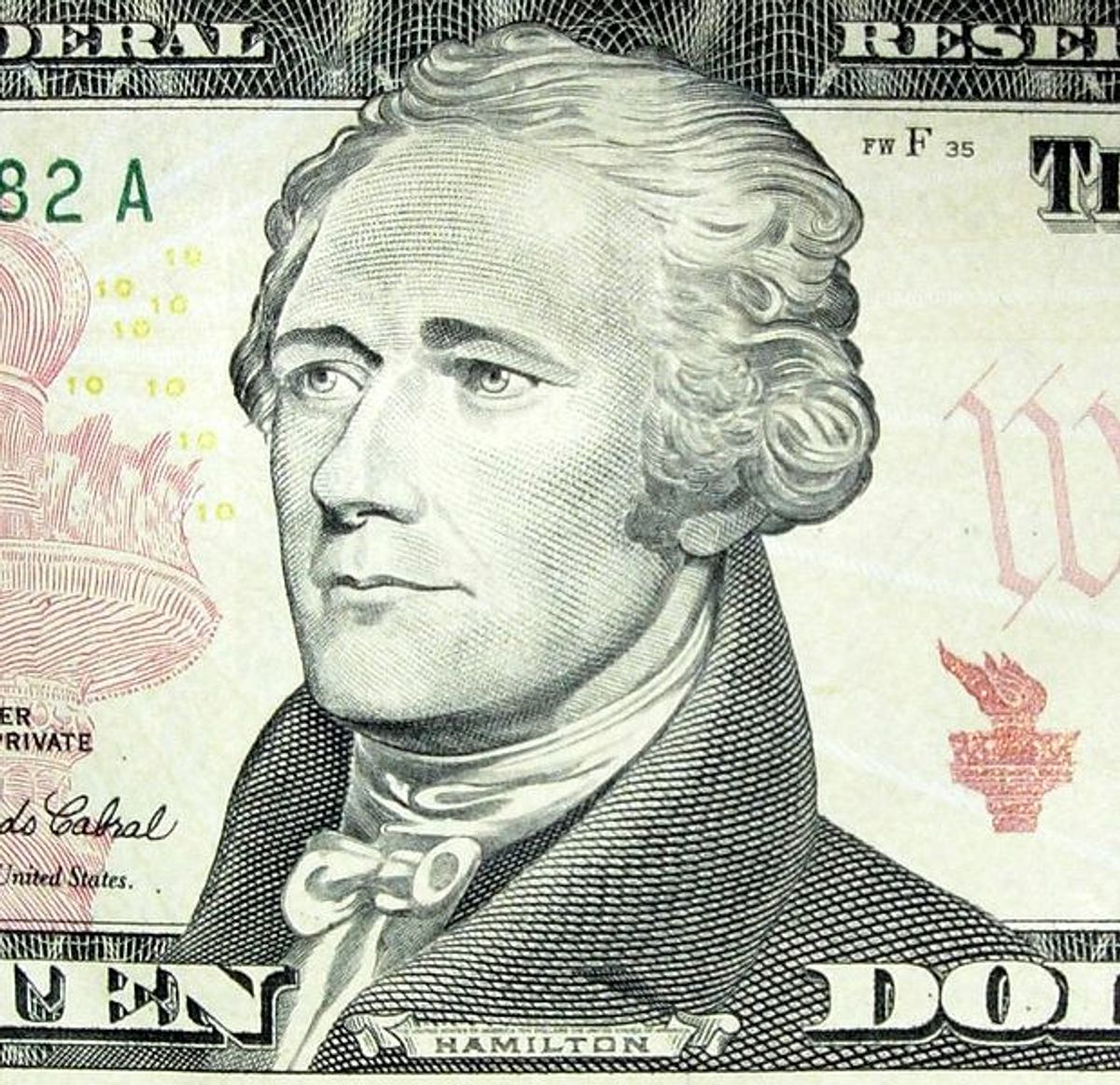For a while now, we’ve known a woman was going to take her place on a piece of America’s paper currency; it seems long overdue, especially as we get close to the 100th anniversary of women’s right to vote. But most observers did not expect one of the founding fathers of American conservatism – a figure so complex and charismatic he was recently the subject of a very hip Broadway show – to have to move aside.
But next to the shock of Alexander Hamilton’s toppling for the sake of a woman-to-be-named-later, we’re hearing all kinds of pleas for his genius and centrality. The Washington Post, for instance, has called it “a grave historical injustice.”
It would have seemed unlikely a decade ago, but we seem to be locked into an oddball stage: Alexander Hamilton nostalgia.
Here’s Time:
The public had been led to expect that a different man would have a diminished presence: Andrew Jackson, the man on the $20. A campaign to put a woman on the $20 has drawn widespread attention. As Treasury’s plan became apparent, Dave Weigel of Bloomberg Politics spoke for many: “So anti-central bank Indian genocide junkie Jackson stays on the $20 while American hero Alexander Hamilton is off the $10?”
Hamilton has long been considered an icon of the aristocratic, Burkean tradition, but the protests are coming not just from the political right. Hamilton wished the French revolution had never happened, and championed banks and the wealthy (he wanted to “unite the interest and credit of rich individuals with those of the state”). The right-leaning Manhattan Institute (aligned with reactionary pseudo-thinkers like Bill Kristol and Charles “Bell Curve” Murray) loves Hamilton. Jackson, by contrast, became the father of the Democratic party.
But it’s not the Donald Trump types who are rallying around Hamilton. “Why does Andrew Jackson stay on his bill?” lefty feminist Katha Pollitt tweeted. “Hamilton by far the better man.” She linked to a Huffington Post story that makes a case for Hamilton on ground we’re used to associating with the American left. As Ryan Grim writes:
Hamilton, one of America's founding fathers, was a strong opponent of slavery, and was an early member of the New York Manumission Society, an abolitionist group that organized boycotts against merchants connected to the slave trade and lobbied for legislation abolishing the institution.
By contrast, some of the cheers over Hamilton’s demise are coming from the political right: Ira Stoll, former managing editor of the conservative New York Sun, tweets of this man typically taken as the champion of laissez-faire capitalism: “Good riddance to the father of big government.”
What to make of all this? Well, people are complicated, and don’t always line up along the conventional left-right axis. Hamilton has an especially unstable background, especially compared to Virginia planters who dominated the founding generation: Born in the British West Indies and orphaned, Hamilton had an early history so sketchy, we’re not even sure of his birth year.
But part of it is that we’ve gotten Hamilton wrong over the decades, perhaps thanks to high school history classes that framed Hamilton as the father of American conservatism and Jefferson as the founder of U.S. liberalism, with Andrew Jackson as his inheritor. As historian Arthur Schlesinger, Jr., wrote for Stoll’s old paper:
The idea that the free market could regulate itself Hamilton called a "wild speculative paradox." The "spirit of enterprise," he wrote in the "Seventh Federalist," when "unbridled…naturally lead to outrages, and these to reprisals and wars."
Hamilton's most formal state paper is his "Report on Manufactures." There, he summed up his case against what George Soros calls market fundamentalism. Americans, Hamilton wrote, had "a certain fundamentalism of mind, a certain activity of speculation and enterprise which if properly directed may be made subservient to useful purposes, but which if left entirely to itself, may be attended with pernicious effects."
These protests are not likely to save Hamilton’s place on the $10 bill. But the rush of love for the nation’s first Secretary of the Treasury, who was killed in a duel with Aaron Burr, will be good for “Hamilton.” Apparently advance tickets for the next run of Lin-Manuel Miranda’s musical are selling like crazy. Make sure you pay for it with a roll of tens.

Shares